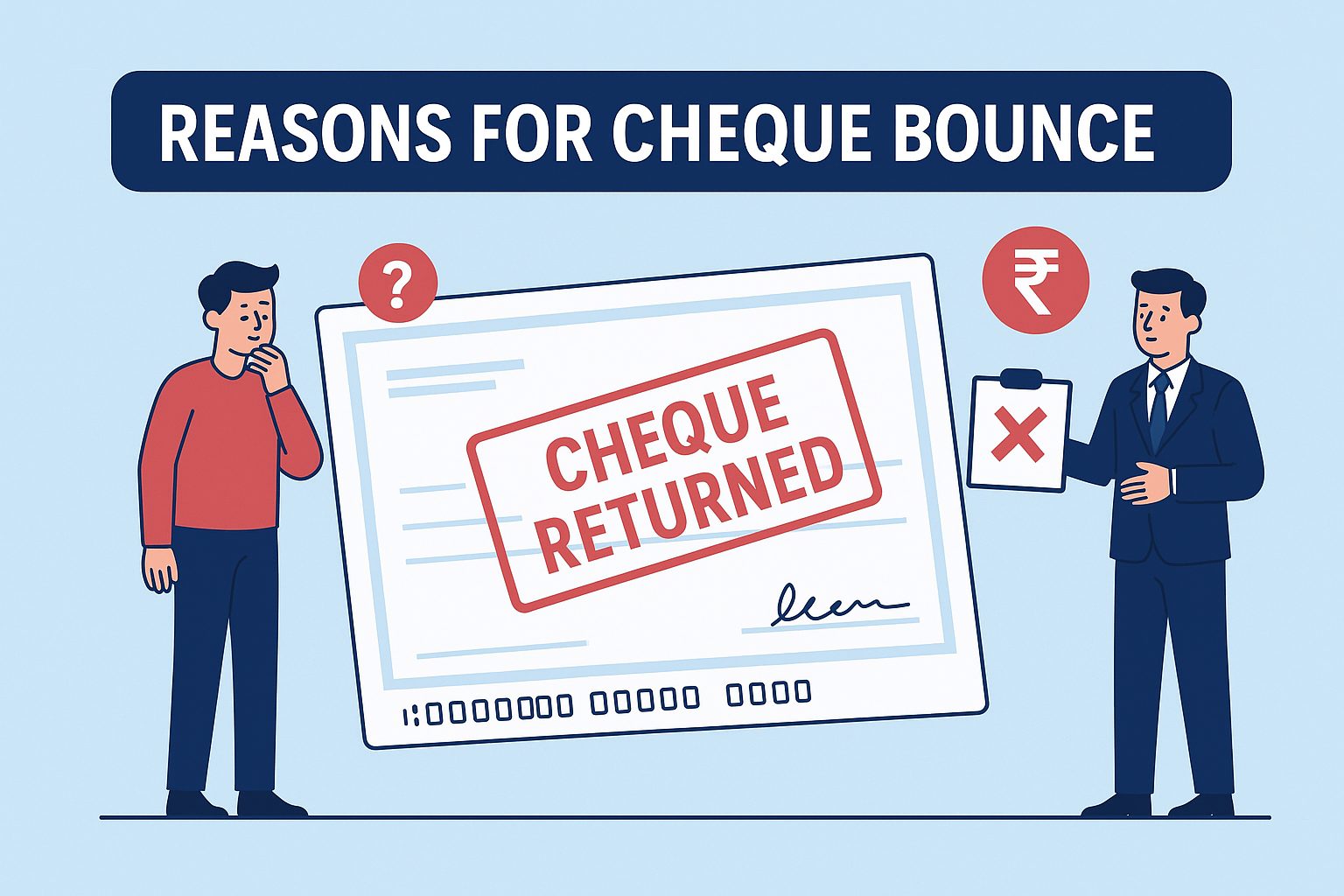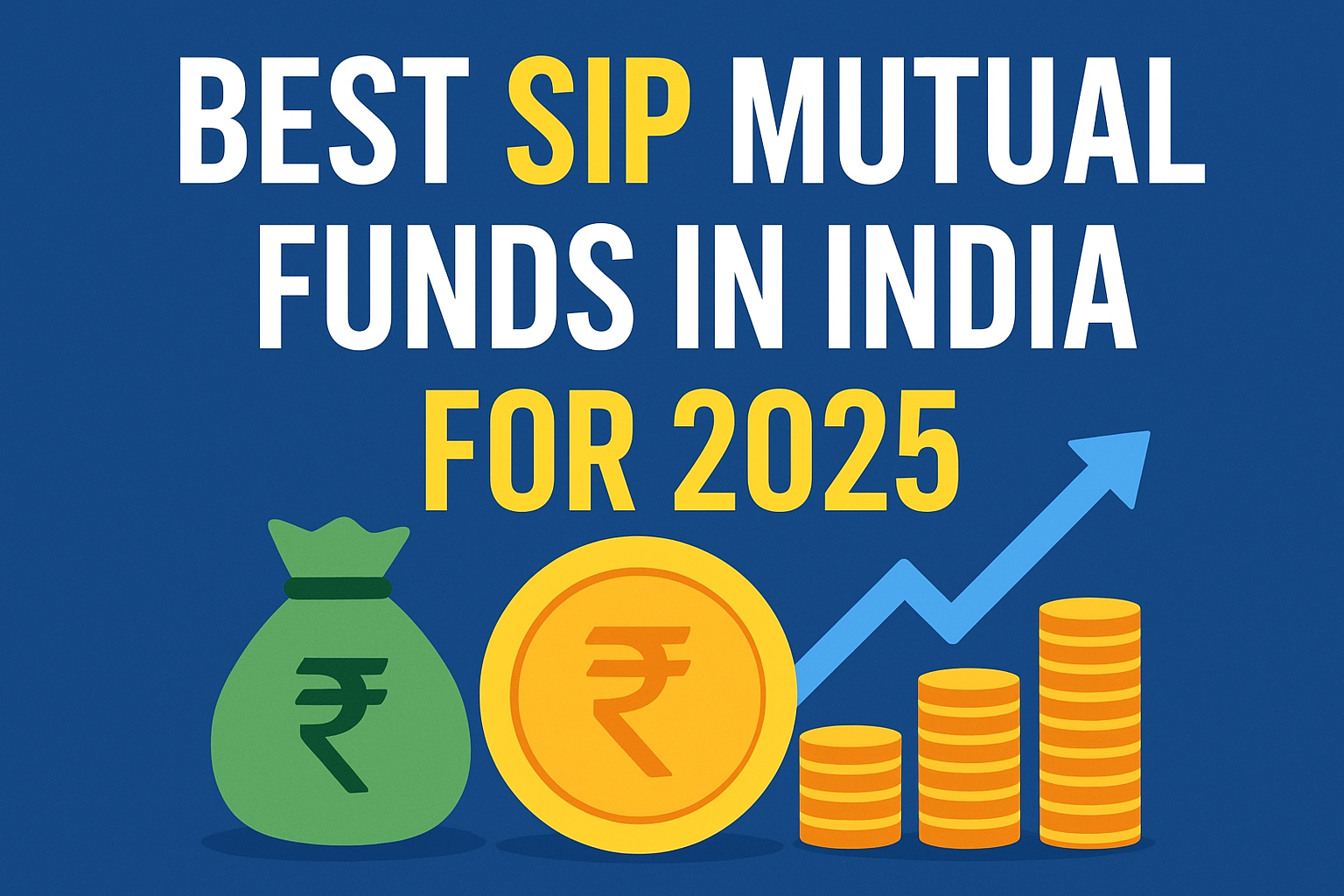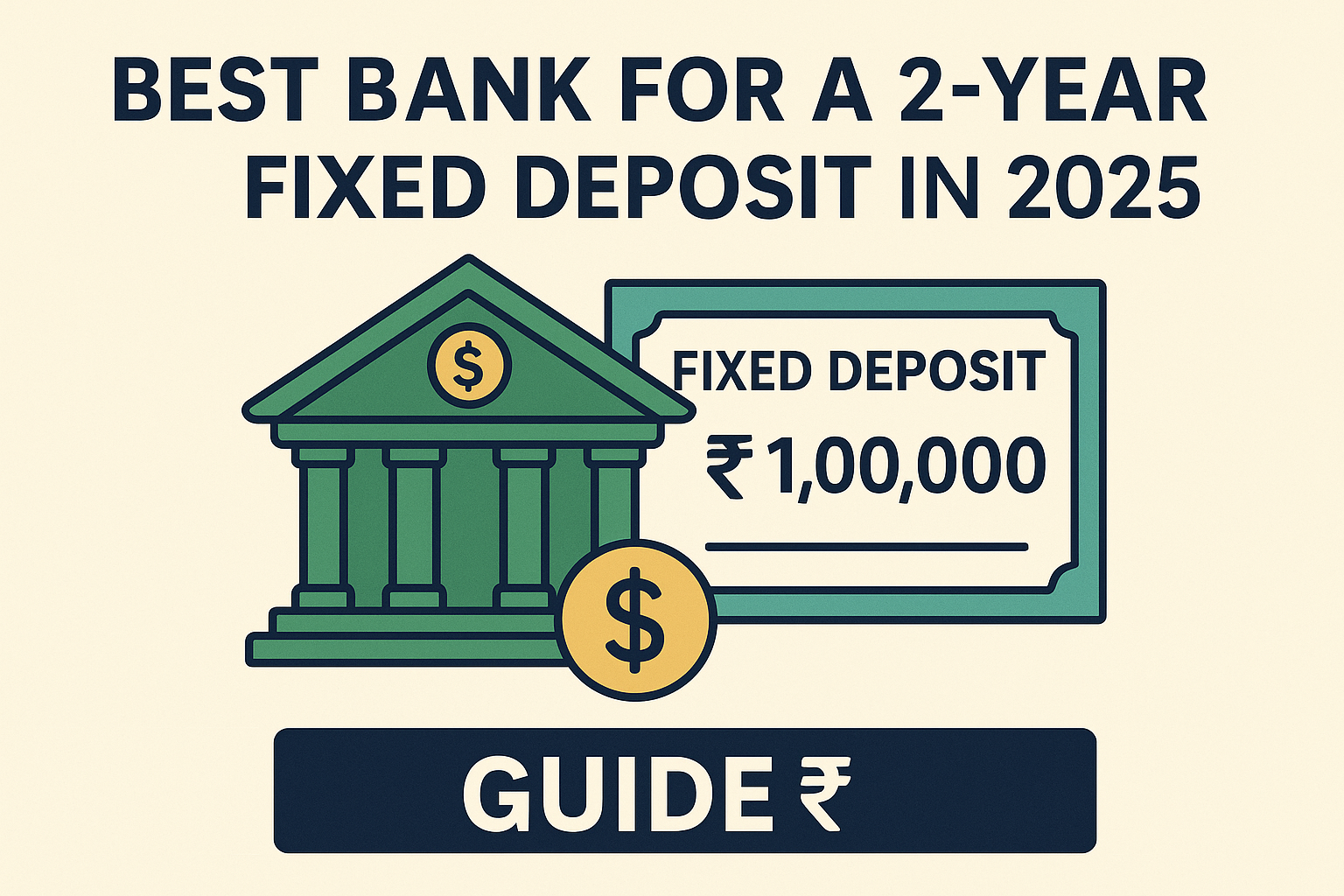Despite the growth of digital payments, cheques are still widely used in India for large transactions, business payments, and official purposes. However, cheque bounce cases are on the rise, often causing inconvenience, penalties, and legal consequences. In this post, we’ll explain the most common reasons for cheque bounce and how you can avoid them.
✅ What is a Cheque Bounce?
A cheque bounce occurs when the bank refuses to honor a cheque presented for payment. This means the cheque is returned unpaid to the payee with a reason mentioned by the bank. In legal terms, this is called “dishonour of cheque.”
🔟 Top 10 Reasons for Cheque Bounce
- Insufficient Balance
- The most common reason. If your account doesn’t have enough money to cover the cheque amount, the bank will return it unpaid.
- Signature Mismatch
- The signature on the cheque must exactly match the signature recorded with the bank. Any mismatch leads to rejection.
- Stale or Post-Dated Cheque
- A cheque is valid for only 3 months from the issue date. Presenting it after that makes it stale. Post-dated cheques presented before their due date will also bounce.
- Overwriting or Corrections
- Any visible overwriting, correction, or tampering without proper authentication will lead to dishonour.
- Account Closed
- If the account is closed before the cheque is presented, the bank will reject the cheque.
- Payment Stopped by Drawer
- If the cheque issuer instructs the bank to stop the payment, the cheque will bounce.
- Mismatch in Amount (Words vs. Numbers)
- The amount mentioned in figures must match the amount in words. If there’s a mismatch, the bank will not process it.
- Cheque Not Signed or Incomplete
- A missing signature, date, payee name, or amount can result in rejection.
- Irregular Cheque Format
- Damaged or non-MICR cheques, or cheques not in standard format, can be dishonoured.
- Frozen or Blocked Account
- If the account is under legal restriction or freeze (due to court orders or regulatory issues), the cheque will bounce.
⚖️ Legal Implications of Cheque Bounce
Under Section 138 of the Negotiable Instruments Act, cheque bounce due to insufficient funds or payment stop can lead to legal action. The payee can send a legal notice within 30 days, and if the issue isn’t resolved, a criminal complaint can be filed. This may lead to a fine or imprisonment of up to 2 years.
🛡️ How to Avoid Cheque Bounce?
- Keep sufficient balance in your account.
- Always double-check the cheque before issuing.
- Avoid overwriting or alterations.
- Make sure your signature matches bank records.
- Use updated cheque books with proper formats.
- Don’t issue cheques from closed or frozen accounts.







